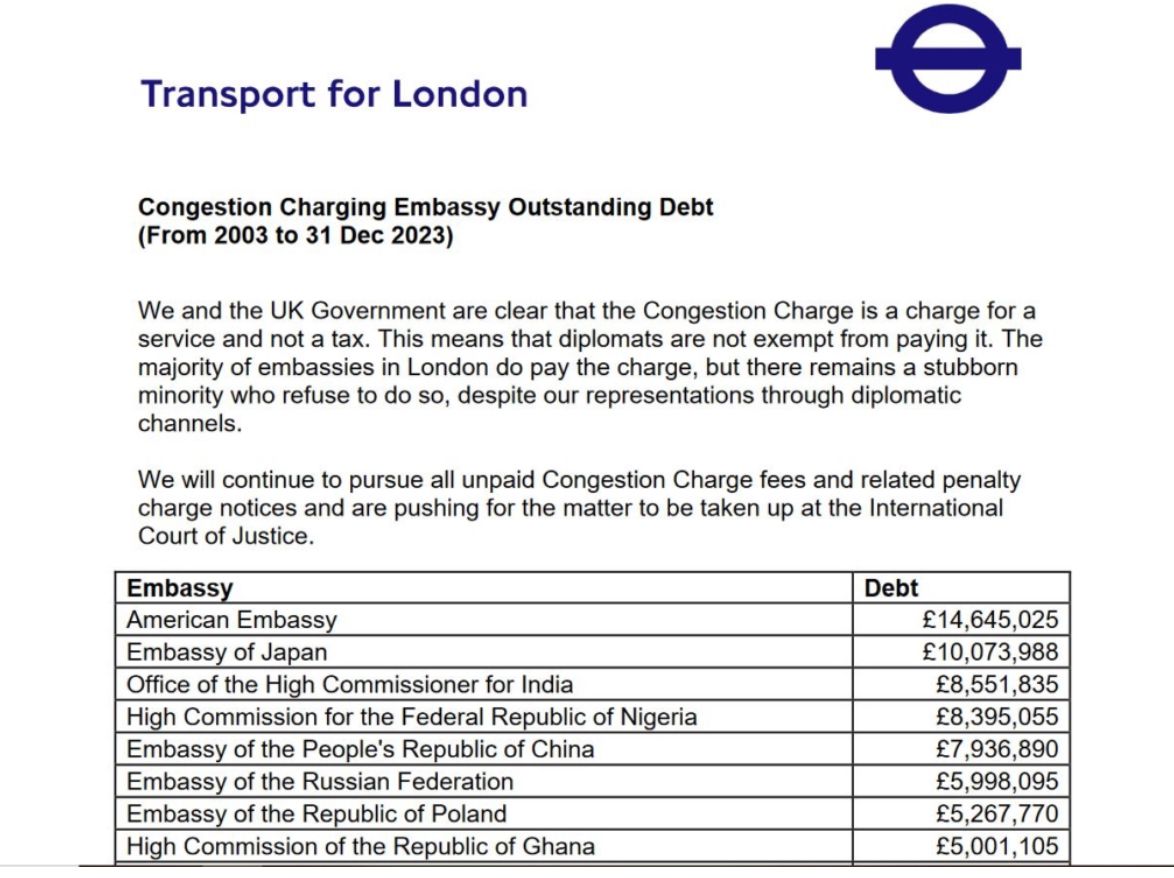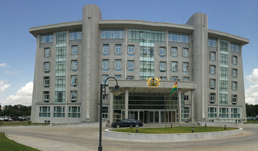The United Kingdom government is intensifying its efforts to recoup outstanding congestion charges, dating back two decades, from various countries, including Ghana and the United States.
Despite persistent diplomatic representations, a significant number of embassies in London have staunchly refused to settle their dues, prompting the UK government to escalate the matter.
Plans are underway to bring the issue to the International Court of Justice, underscoring the gravity of the situation.
In response, the Foreign Office has reaffirmed its stance, emphasizing that diplomats are expected to adhere to local regulations, with no legal basis for exemptions.
However, echoing international law outlined in the 1961 Vienna Convention on Diplomatic Relations, the US Embassy in London contends that diplomatic missions are exempt from the congestion charge, a position supported by several other diplomatic entities.
Former Foreign Secretary Dominic Raab previously disclosed efforts to compel diplomatic missions to settle outstanding debts, encompassing congestion charges, parking fines, and business rates.
Transport for London (TfL) sheds light on the staggering extent of unpaid charges, with diplomatic missions collectively owing over £143 million, underscoring a systemic challenge.
The Ghana High Commission emerges as one of the significant debtors, with an outstanding balance exceeding £5 million, contributing to the substantial financial burden on TfL.
Notably, the US Embassy tops the list of debtors, with an outstanding amount of £14.6 million, followed closely by the Embassy of Japan.

The congestion charge scheme, introduced in 2003, entails a daily fee for vehicles traversing central London during specified hours, with exceptions for certain groups.
TfL asserts that the congestion charge constitutes a service fee rather than a tax, thereby negating diplomatic immunity from payment obligations.
As tensions escalate, the impasse underscores broader diplomatic intricacies and the intricacies of international law governing diplomatic privileges and obligations.
By Daakyehene nana yaw Asante with additional files from BBC







